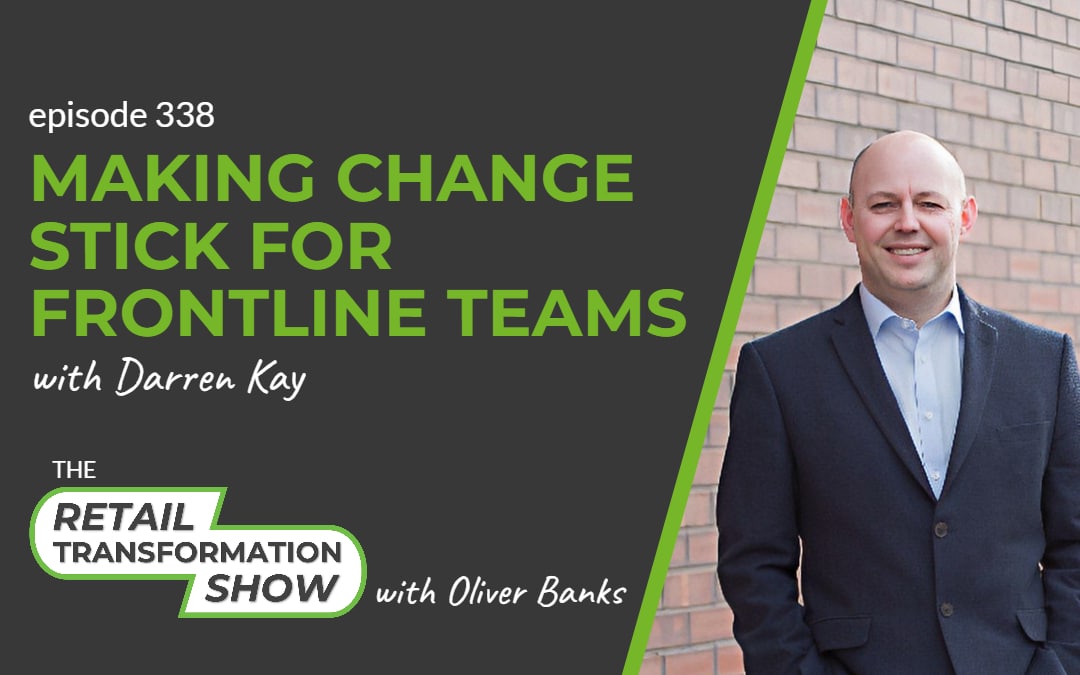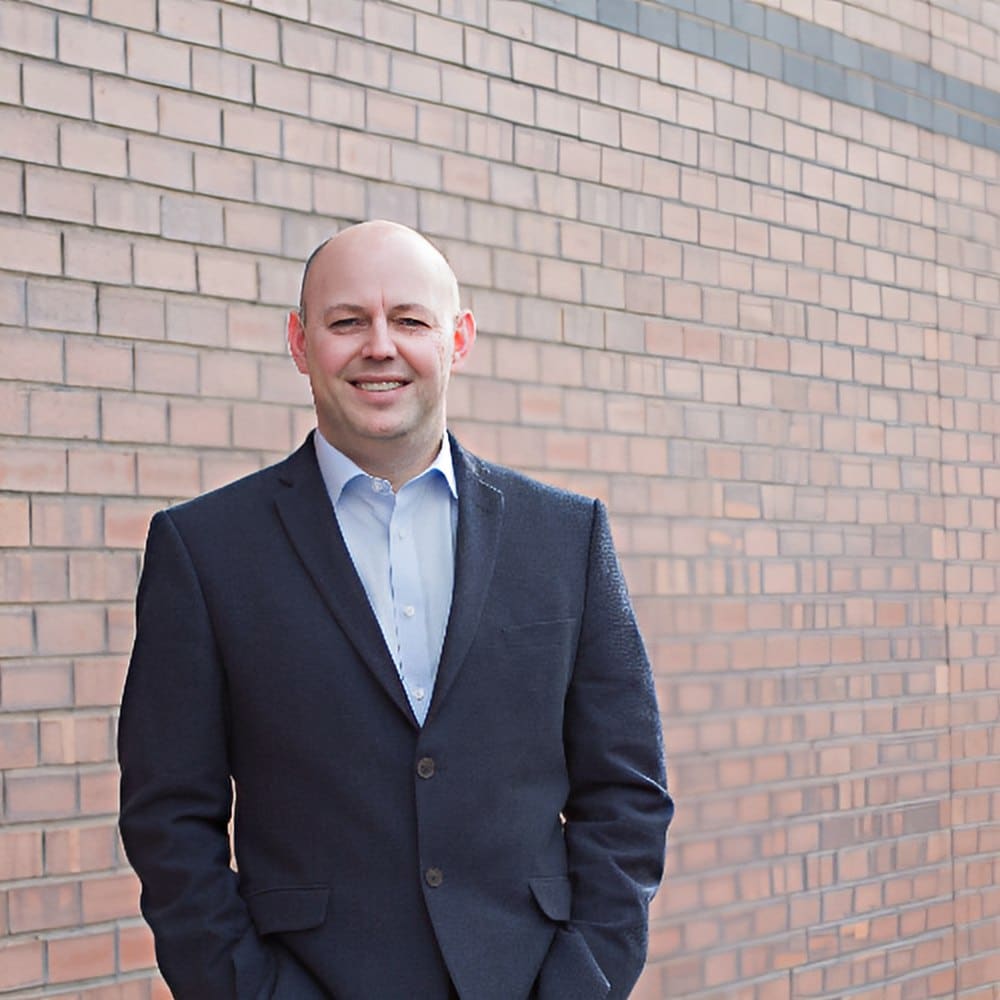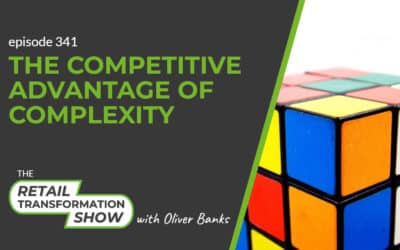Change is the only constant in retail, yet driving it through vast, multi-site operations poses unique challenges. In this episode, Oliver Banks sits down with Darren Kay—veteran retail leader behind Debenhams, Poundland, Carpetright, and now Hobbycraft—to unpack how to deliver meaningful, sustainable change on the frontline. From aligning dispersed teams and balancing “business as usual” with transformation, to the power of clear communication and two-way dialogue, Darren shares hard-won lessons for embedding change as a daily habit rather than a disruptive project.
Listen to this podcast episode to hear:
- Learn how clear, honest “why” messaging secures frontline buy-in and bridges the gap between strategy and store-floor action.
- Understand the role of inclusive, cross-functional teams in overcoming geographic and organisational silos.
- Explore practical ways to prioritise change initiatives so they nest seamlessly within day-to-day operations.
Introducing Darren Kay
Darren Kay is a seasoned retail leader with over two decades of experience driving growth and transformation across major UK brands. He has held senior leadership roles at Debenhams, Poundland, and Carpetright, and currently serves as Retail Director for Hobbycraft. Known for his pragmatic approach, both in times of growth and adversity, Darren champions inclusive, cross-functional collaboration, clear communication and ruthless prioritisation to make change both achievable and sustainable in complex retail environments.
Find Darren Kay on LinkedIn.
Key takeaways and lessons from the episode
Embedding change as a continuous mindset
Darren stressed that true transformation isn’t a one-off project but an ongoing commitment. By making change “business as usual,” retail leaders can avoid the peaks and troughs of sporadic initiatives. This continuous mindset enables teams to view improvement as an integral part of their daily workflow, rather than an additional burden.
Inclusive planning and a clear “why”
Early in any change program, Darren highlighted the need for cross-functional representation—from store teams and operations to HR and IT. Involving diverse voices uncovers frontline realities and builds genuine buy-in. Equally important is communicating the rationale behind change clearly and honestly: explaining “why” a new process matters gives colleagues a sense of purpose and reduces resistance.
Balancing performance pressures with innovation
When sales and profitability are under scrutiny, it’s tempting to push aside improvement efforts. Darren advised carving out dedicated time and resources for change, tied directly to performance metrics. This dual focus—protecting core business performance while seeding innovation—ensures neither area is neglected.
Making change stick through routine
To prevent fatigue and churn, new behaviours must be embedded into daily routines. Darren shared examples of simple habits – short daily huddles, visual progress boards, and regular feedback loops – that reinforce fresh ways of working. These rituals help maintain momentum and remind teams that change isn’t complete once the project ends.
Two-way dialogue and strategic space to think
Finally, Darren emphasised the power of listening. Frontline colleagues hold invaluable insights into what works—and what doesn’t. Structured, ongoing dialogues allow leaders to address issues early and adapt tactics. Pairing this with intentional, strategic space to think, moments set aside for planning, reflection, and prioritisation, helps maintain clarity and focus amid the swirl of day-to-day demands.
Keep these principles in mind as you lead your own transformation efforts. When change is inclusive, purposeful, and woven into your organisation’s routines, it has the best chance of truly sticking.







![337: [Show Update] Pressing Pause to Refocus](https://obandco.uk/wp-content/uploads/2025/07/337-Show-Update-Pressing-Pause-to-Refocus-1080x675px-400x250.jpeg)
